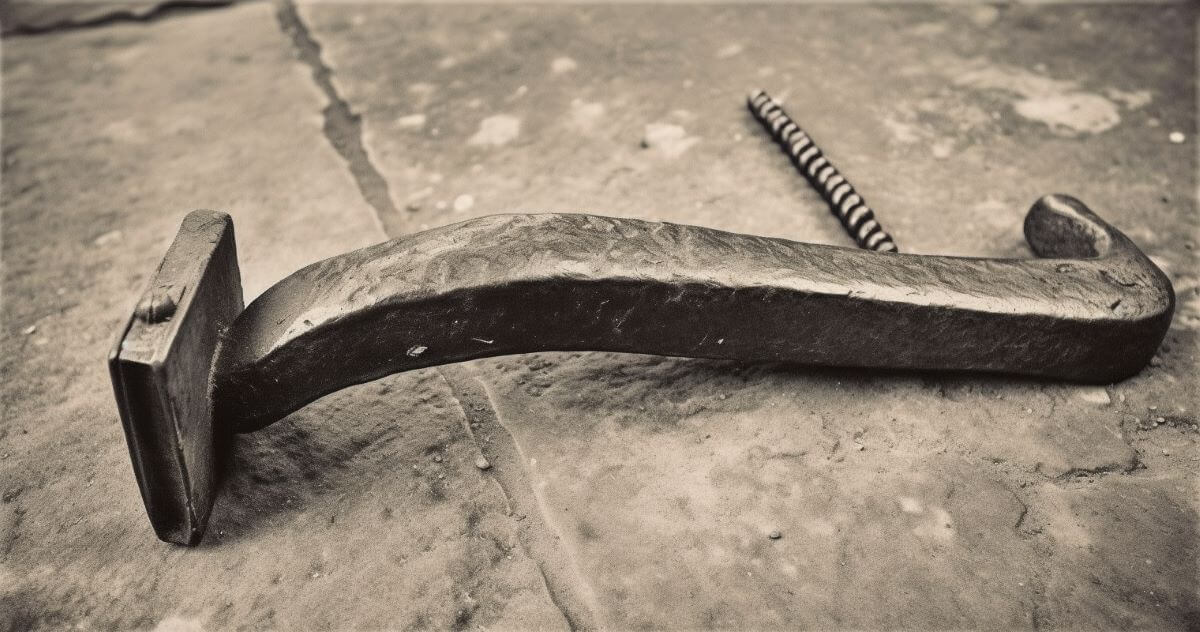dead as a doornail
Meaning of the phrase:
-totally or assuredly dead
· I asked my zombie friend how he was feeling and he replied, 'Dead as a doornail.' I guess even the undead can use a little humor.
Origin of the phrase:
First things first, let’s establish what this phrase means. When someone or something is “dead as a doornail,” it’s as clear as day that they are no longer among the living. It’s an unequivocal declaration of death, without any room for doubt or debate.
But why a doornail, you ask? Why not just any old nail? Well, my curious phrase aficionados, the answer lies in the unique qualities of a doornail.
Back in the day, when nails were made by hand, they were a hot commodity. People would salvage and reuse them whenever possible. But doornails were different. They were bent and driven into the backside of a door in a way that made them virtually impossible to reuse as a nail. The end was hammered flat, then bent, in a process called “clenching,” which secured the nail in place and rendered it unusable for any other purpose.
So not only are doornails dead because, well, they’re nails, but they’re also dead because their potential for any other use is completely gone. This makes them quite dead – in fact, you might say they’ve achieved a kind of posthumous overkill, a state of being ‘deader than dead’ or, dare I say it, ‘extra dead’.
Contrary to popular belief, the phrase “dead as a doornail” has nothing to do with the demise of a nail. In fact, its origins can be traced back to the 1300s, when it appeared in the poem The Vision of William Concerning Piers Plowman, translated by William Langland in 1350:
For but ich haue bote of mi bale I am ded as dorenayl.
The phrase persisted through the centuries, and was most famously used by Charles Dickens in his A Christmas Carol in 1843, cementing its place in the English lexicon:
Old Marley was as dead as a door-nail.
Mind! I don’t mean to say that I know, of my own knowledge, what there is particularly dead about a door-nail. I might have been inclined, myself, to regard a coffin-nail as the deadest piece of ironmongery in the trade. But the wisdom of our ancestors is in the simile; and my unhallowed hands shall not disturb it, or the Country’s done for. You will therefore permit me to repeat, emphatically, that Marley was as dead as a door-nail.
Who would’ve thought that a phrase about a doornail could be so enduring? But that’s the beauty of language – even the most mundane things can take on a life of their own. One thing’s for sure though – this phrase has definitely stood the test of time. It’s been around since the 1300s, and it’s still going strong today. In fact, it’s safe to say that it’s certainly not dead as a doornail itself!
